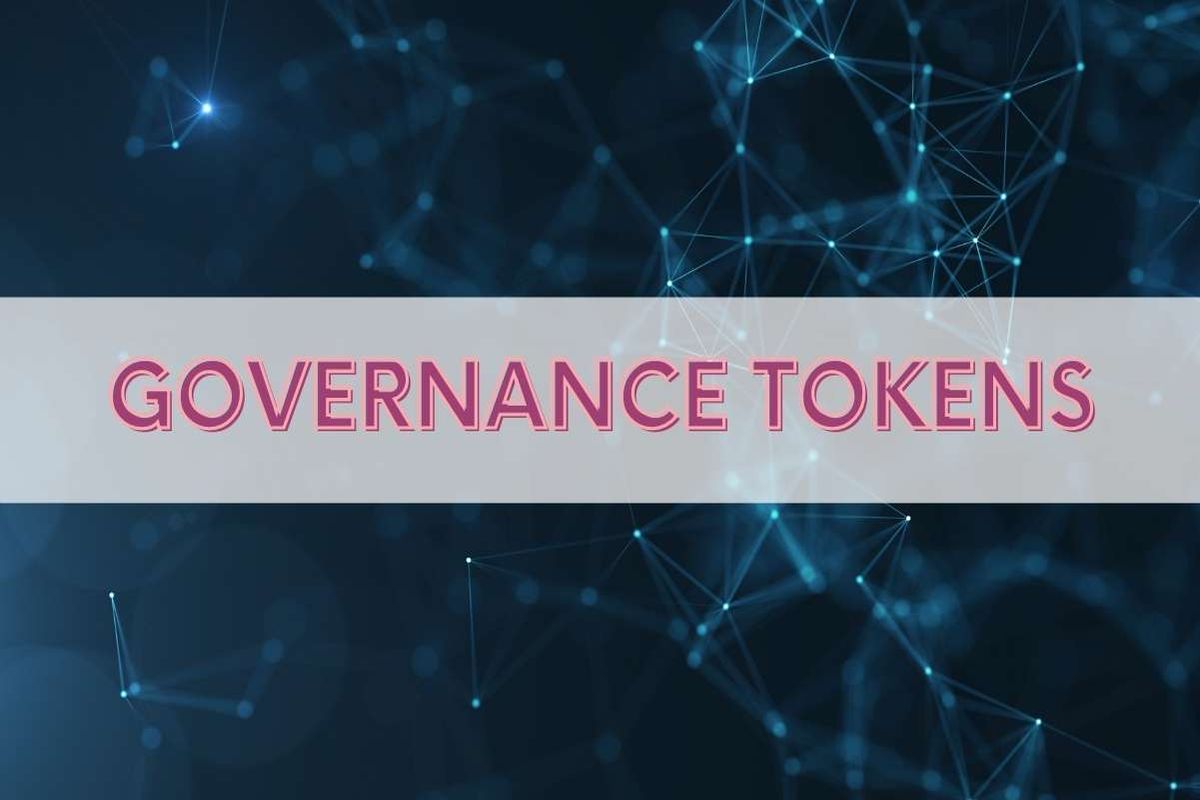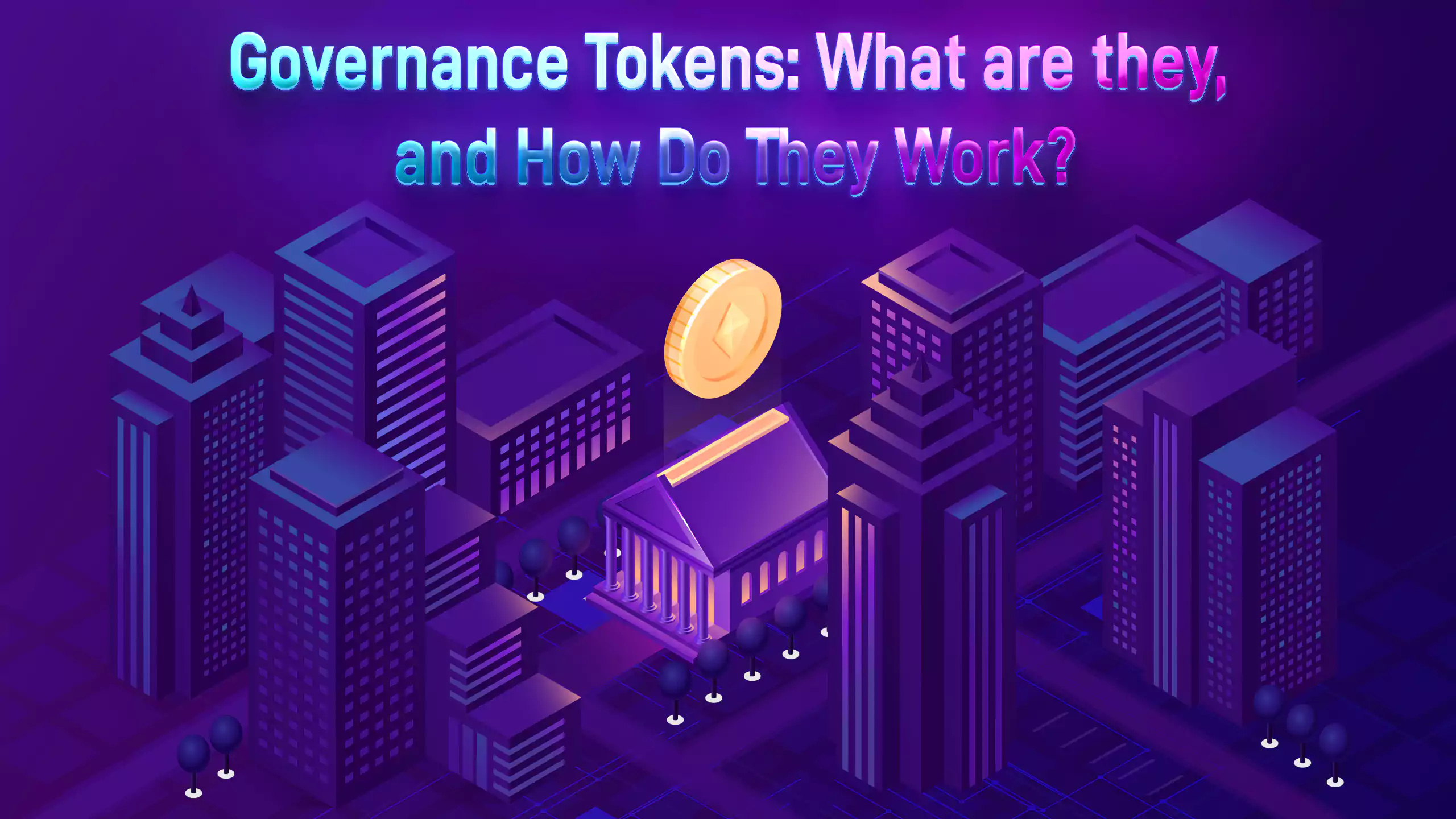Governance tokens are described as a new form of blockchain element that is rapidly gaining popularity. The tokens enable users to have a more democratic approach to governance on various blockchain networks.
These tokens have the potential to revolutionize how the networks operate. Currently, many different types of tokens exist. Governance tokens let holders vote on critical decisions that impact the entire network or blockchain. Such tokens offer users a say in how the network is run.
Notably, governance tokens are becoming majorly popular as more projects strive to decentralize their decision-making process. This kind of token gives the holders a straightforward method of influencing the direction of a project. Moreover, it offers a strategy for the projects to fundraise without relinquishing control of their governance.
MakerDAO’s MKR token is one of the most renowned governance tokens. MKR holders can vote on different important decisions that impact the Maker protocol, including which assets to include in the protocol’s collateral basket and how to manage the protocol’s risk.
Governance Tokens Overview
A governance token is a blockchain-based asset that enables the holder to actively participate in a decentralized organization’s management and decision-making process. In most cases, decentralized autonomous organizations (DAOs) use governance tokens.
The digital communities and platforms work based on transparent rules encrypted on a blockchain avoiding the need for a centralized authority. By having a governance token, DAO members are allowed to vote on proposals that determine the way an organization is operated. The voting process is normally proportional to the cumulative number of tokens they own.
This system provides everybody with a say in how the DAO works while simultaneously aligning every user’s interests with the organization’s success. The system achieves that because token holders stand to gain or lose value subject to DAO’s performance.
Related: DAOs Are The Foundation Of The Creator Economy, Web3, And The Future Of Work
Governance tokens may also be utilized by non-blockchain institutions, including traditional firms, to provide stakeholders with means of participating in decision-making. For instance, a firm may issue governance tokens that entitle the holders to vote on different proposals related to the firm’s strategy and operations.
By offering stakeholders a direct voice in the way the firm is operated, governance tokens can assist in aligning everyone’s interests with the business’s growth and success.
Many governance models use governance tokens. However, they all have one similarity: they let users vote on decisions that affect the project. This could range from deciding what new features to add to selecting which developers get paid for their work.
Governance tokens can finance various projects via initial coin offerings (ICOs). In this context, a project sells tokens to investors for funding. Investors can then use the tokens to cast their vote on the project’s direction.
Some of these projects employ a hybrid model, where some of the funding is acquired from an ICO and the other part from traditional sources like venture capitalists. In that case, the governance token gives the holder voting rights proportionate to their investment.
These tokens are a new strategy for funding and operating blockchain projects. They offer users a voice in the way the project is run and enable projects to raise money without giving up any control to venture capitalists and other financial institutions.
How Do These Tokens Work?
Governance tokens give holders a vote on the way a project is run. It could range anything from voting on the budget proposals to determining which components and features to implement. The more tokens you have, the more weight your vote has.
This voting strategy supports decentralized decision-making that lifts power from a small group of individuals and gives it to the token holders. An example of a governance token is MakerDAO’s MKR token. MKR holders vote on the amount of collateral needed for loans and what interest rates need to be charged.
Related: How MakerDAO Works – The Stablecoin Explainer
Another great example is Augur’s REP token. REP holders can vote on the outcome of events bet on. This enables to guarantee that the event is resolved fairly.
Governance tokens send power back to the people and guarantee that decisions are made fairly and transparently. If you wish to invest in a governance token, ensure that you do extensive background checks. Review the project and make sure you comprehend the way voting systems operate. Furthermore, look at the community and See whether there is any possible conflict.
Governance Token versus Utility Token
In the crypto world, there are two primary types of tokens: governance tokens and utility tokens. Both of these tokens have their distinct purpose and use cases. The primary difference between the two is here.
Governance tokens provide the holders with a say in how a project is operated. They let holders vote on decisions, including changes to the protocol or major strategic decisions. In the meantime, utility tokens offer access to a product or service.
Which type of token is ideal for you? It mainly depends on what you are looking for in a project. A governance token is an ideal choice in case you want to get involved in decision-making and have a say in the way a project is operated. A utility token is a perfect way to run it.
Why Are Governance Tokens Important?
These tokens are important for several reasons. First, they give holders a say in how a project is run. This is mainly crucial for open-source projects that are mostly collaborative efforts with most stakeholders.
Secondly, governance tokens can help in aligning the interests of all parties that are involved in a project. For instance, in case a project is successful, the value of the governance token increases, providing holders with incentives to guarantee that the project remains successful in the long term.
Thirdly, these tokens can offer funding for a project by enabling holders to vote on proposals to allocate funds. That can be used to finance continuing developments or new features.
Moreover, the governance tokens can develop decentralized communities around a project. Holders of the token can vote on decisions that affect the community, such as what new features to include or what bugs to fix.
In the end, governance tokens can give holders an ideal way to exit a project in case they are no longer happy with the way it is being operated. They can state their dissatisfaction by selling their tokens and possibly compel changes in the project.
Generally, governance tokens are crucial since they give holders a voice in the way a project is operated and assist in aligning the interests of all the parties involved. They can also offer to fund, develop communities, and give holders a means of exiting a project when needed.
Use Cases
Governance tokens are mostly used to decentralize power and give control back to the people. They provide a new level of transparency and accountability that was not the case with the traditional methods of governance. Here are some of the possible applications of governance tokens:
- Decentralized Autonomous Organizations (DAOs) – Governance tokens can power DAOs, which are run by smart contracts on the blockchain. They are immutable, transparent, and open source. By using governance tokens, DAOs can be entirely controlled by the community.
- Decentralized exchanges (DEXs) – DEXs are crypto exchanges powered by smart contracts on the blockchain. They are also transparent, decentralized, and open source. By using governance tokens, DEXs can be entirely controlled by the community.
- Decentralized applications (dApps) – dApps are powered by smart contracts on the blockchain and by using governance tokens they can be wholly controlled by the community.
- Initial coin offerings (ICOs) – ICOs are crowdfunding campaigns for new crypto projects and they are mostly used to raise funds for developments. By using the governance tokens, ICOs can be entirely controlled by the community.
- Token economics – the governance tokens can be used to design new token economies. By description, token economics is the study of the way tokens are used and exchanged in a decentralized economy. By using governance tokens, token economies can be entirely controlled by the community.
Related: Tom Shaughnessy and Jordan Clifford on Layer 1 Wars, Token Economics and a Shift to Applications
- Decentralized finance (DeFi) – DeFi is a new category of financial applications powered by smart contracts on the blockchain. The community can entirely control DeFi apps by using governance tokens.
- Prediction markets – these platforms enable users to bet on outcomes of events. They are mostly used to predict the results of sporting events and elections. By using governance tokens, the community can fully control the prediction markets.
- Social networks – these networks let users connect and they are mainly used to share information and build relationships. Hence, using governance tokens lets users control these social networks entirely.
- Gaming platforms – these platforms let users play games and they are primarily used to reward players for their achievements. Using these tokens enables the community to control these platforms completely.
- Data marketplaces – these platforms enable users to buy and sell data. They are mostly used to collect and sell data about user behavior. By using governance tokens, these platforms can be fully controlled by the community.
Pros And Cons Of Governance Tokens
Governance tokens are a type of crypto that provides the holders with voting rights on the direction of a project. Supporters of these tokens insist that they align the interests of all stakeholders and offer a way for projects to fundraise without having to dilute equity. Nevertheless, some shortcomings come with investing in a governance token.
Among the most notable benefits that come with governance tokens include:
- Funding without dilution.
- Alignment of interests.
- Increased transparency.
Nevertheless, there are a few shortcomings to consider:
- Centralization risks.
- High entry barriers.
- Regulatory uncertainty.
Governance tokens are a relative innovation in crypto. In that context, there are various risks and uncertainties that you need to consider before investing. But, in case you are confident in the team developing the project and think about its long-term success, then investing in these tokens could be a perfect way to align your interests with those of the project.
Conclusion
Governance tokens are cryptos that offer holders voting rights in the direction they want a project to take. They are mostly used in decentralized autonomous organizations (DAOs), where they let token holders have a say in the way the organization is operated.











